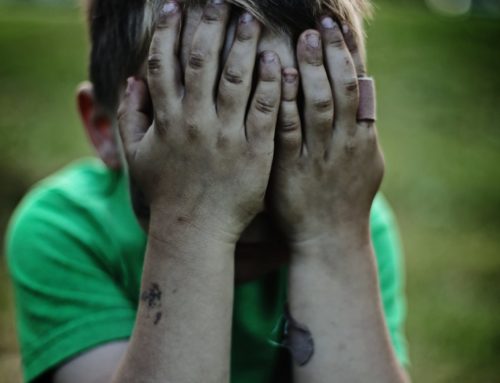When Your Child Feels Sad.
We often hear, “I feel depressed,” or “I struggle with Depression.” But what does that mean? How is that different than a typical response of feeling sad? Everyone has bad days and times where they feel sad. The difference between sadness and depression is the persistence of symptoms. Typically, the melancholy spell lasts longer than 2 weeks and the symptoms interfere with functioning such as schoolwork, daily tasks, relationships, and interest.
Why do children get depressed? There are certain factors that can contribute to the development of depression:
- Family history of depression. Especially if an immediate family member experiences depression
- Environmental triggers such as a chaotic and stressful home-life
- Physical health. Children with chronic medical conditions, including obesity, are prone to depression
Children can feel depression in their body just like adults. It can be extreme fatigue where their body seems heavy and tired even after a long night sleep. Another common symptom is often complaining of stomach pains or headaches that do not respond to other treatments.
What are some signs of Depression in children? An official diagnosis comes from a therapist or their pediatrician. Look for these signs to see if your little one would benefit from some support:
5 SIGNS OF DEPRESSION IN KIDS:
Sleep.
Notice if your child’s sleeping habits are different. Look for significant changes in their sleep pattern, such as sleeping in too much or too little sleep.
Appetite.
Any changes in eating habits could signal a symptom of depression. This can be eating too much or too little depending on their typical relationship with food. Weight change can be another way to notice if your child is eating more or less than usual
Sadness.
Persistent feelings of sadness, worthlessness, and feeling hopeless are all signs that your child may be struggling with depression.
Mood.
Sometimes depression in children does not look like sadness. Symptoms such as irritability, anger, or being “on edge” can be other ways that depression is showing up for your child.
Withdrawal.
Loss of interest in activities your child used to enjoy can be a red flag that your child needs help. Any change or withdrawal from activities or spending time with friends may be due to excessive sadness or depression.
Before diagnosing a child with depression, it is always recommended that a comprehensive medical evaluation is completed to rule out any underlying medical condition that can yield similar symptoms. Check with your child’s pediatrician for the following:
MEDICAL CONSIDERATIONS:
Hypothyroidism.
Thyroid levels are very important for mental health for all ages. Signs of an imbalanced thyroid include depressive symptoms, weight gain, low energy, cognitive difficulties, and constipation, among other ailments.
Anemia.
Your child may not have enough healthy red blood cells. This can mimic depression since it causes fatigue or low energy.
Vitamin D.
The pediatrician can check to see if your child has a Vitamin D deficiency. This is common in cold climates and increases the risk of depressive symptoms and fatigue.
Withdrawal.
Has your child stopped taking a medication or other drug? Any change in medication could possibly lead to symptoms that mimic depressive symptoms.
It is a common response for parents to be fearful of the word, “depressed” and immediately jump to the idea of suicide. But it is important to remember that depression is treatable and is not always linked to suicidal ideations, but seeking appropriate intervention early is key.
Always reach out for help if typical attempts to help your child feel better are no longer working. Definitely seek professional help if they express suicidal or self-harming thoughts or feelings. Dial 911 if your child threatens or attempts self-harm or if you fear for their safety.
The good news is that research supports activities and interventions for treating depression. In addition to psychotherapy, sunshine, exercise, and eating healthy for those with mild to moderate symptoms of depression can go a long way in helping your child’s symptoms improve.
If you or a loved one is in need of support, Low Country Counseling offers specialized therapy for Individuals, Moms, Couples, Families, Children, and Teens. Contact us for any questions you need answered or to schedule an appointment. Help is available. You are not alone!
Hope Starts HERE.






